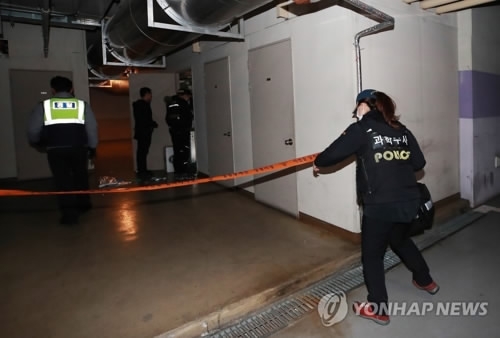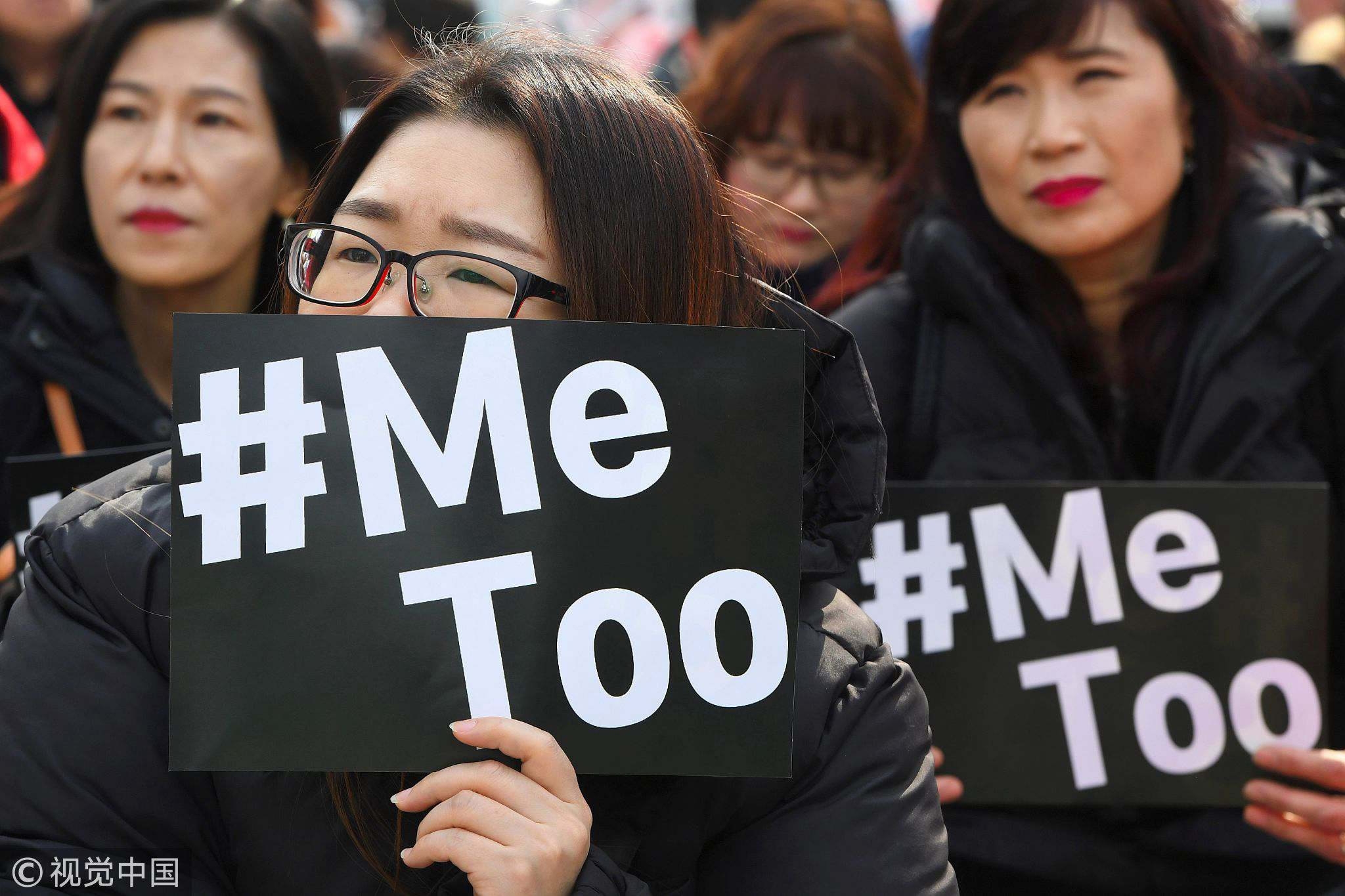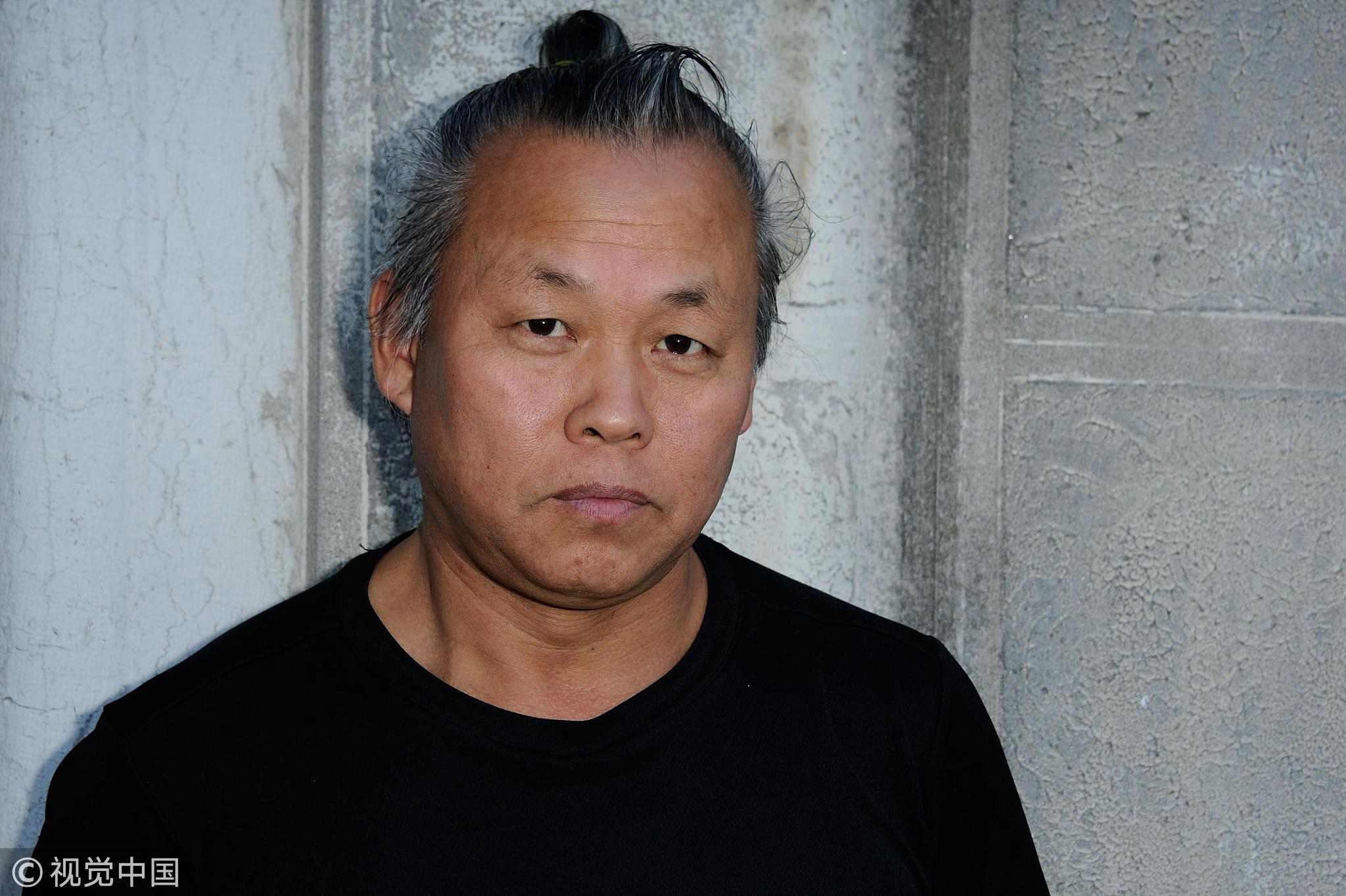
Culture
22:19, 10-Mar-2018
Suicide note found in home of S. Korean actor who died after #MeToo accusations
CGTN

A suicide note of South Korean actor Jo Min-ki was discovered by the police on Saturday, one day after he was found dead in the basement of the building where he lived in Seoul, following a string of sexual abuse allegations.
The 52-year-old actor was accused of sexually abusing at least eight students at Cheongju University, where he taught drama, and was fired after the scandals emerged last month.
According to the police, Jo was found hanged on Friday afternoon, and was declared dead upon arrival at the hospital. He was scheduled to be questioned by the police next week.

Police cordon off the basement where Jo Min-ki's body was found. /Yonhap Photo
Police cordon off the basement where Jo Min-ki's body was found. /Yonhap Photo
The police declined to reveal the full text of his suicide note, in order to protect the privacy of Jo’s family, but said that in the six-page note, he apologized to both his family and his former students.
On Feb. 27, the actor released a statement in which he apologized to the accusers, saying that he is “deeply sorry to all the victims for the pain” he caused to them, and vowed that he would not avoid the “social and legal consequences” of his mistakes.
Jo Min-ki, who made his debut in 1982 as a theater actor, became a veteran of stage and screen. He was often seen in South Korean TV series, and had appeared in several films as well.
#MeToo campaign gains ground in South Korea

South Korean women parade in support of the #MeToo movement. /VCG Photo
South Korean women parade in support of the #MeToo movement. /VCG Photo
Jo was only one of the prominent figures who have been accused of sexual misconduct recently across the country. From artistic circles to the political realm, several celebrities have been accused as more victims were encouraged by the #MeToo movement which has spread to Asia after sweeping the western world.
Film director Kim Ki-duk has been accused of rape by an actress, and poet Ko Un was accused by a fellow poet of abuse, but the poet has denied the allegations.

Director Kim Ki-duk /VCG Photo
Director Kim Ki-duk /VCG Photo
In the political realm, Ahn Hee-jung, governor of South Chungcheong Province, resigned earlier in March after being accused of rape by his secretary Kim Ji-eun. Kim said she was encouraged by the #MeToo movement, adding that she hopes her courage will encourage other possible victims of Ahn to speak out.
The #MeToo movement originated in Hollywood, after several sexual misconduct allegations were made against Harvey Weinstein, and spread online to the other areas of the world afterwards, with more victims stepping forward to reveal their suffering.
The movement took to South Korea after a prosecutor, Seo Ji-hyeon revealed her experiences of being groped by her former bosses back in 2010. The movement also reached China earlier this year, with several university students speaking out against a professors’ misconduct.
A professor in question was removed from his teaching and administrative posts at Beihang University once the accusations had been investigated.
953km

SITEMAP
Copyright © 2018 CGTN. Beijing ICP prepared NO.16065310-3
Copyright © 2018 CGTN. Beijing ICP prepared NO.16065310-3